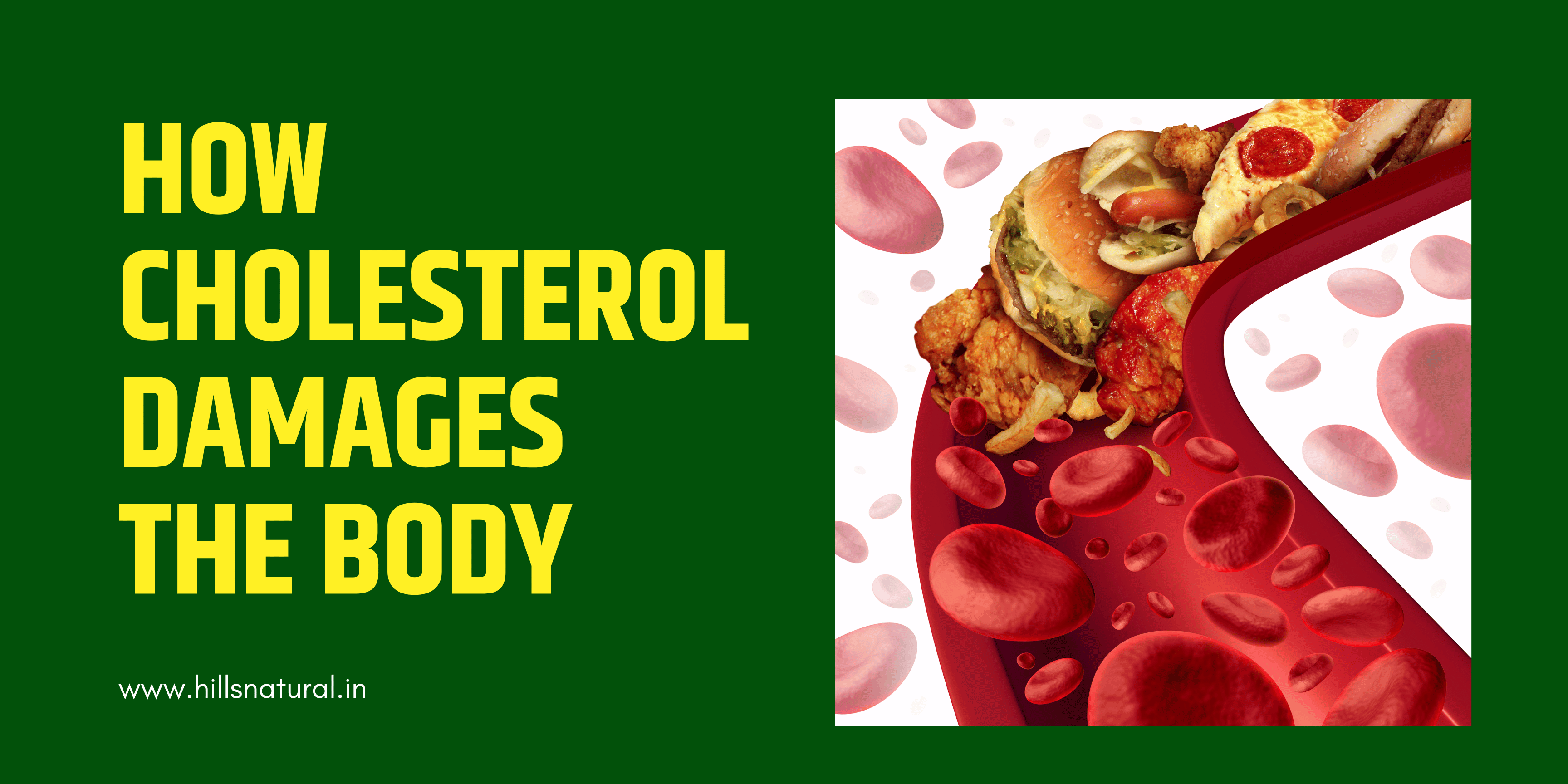
Cholesterol is an essential fat that our body needs to build cells and produce hormones. But when levels get too high, cholesterol damages the body silently and increases the risk of serious health conditions. In this blog, let’s explore how cholesterol affects your health, why it can be dangerous, and how you can protect your body naturally.
What is Cholesterol?
Cholesterol is a waxy substance found in the blood. Your liver produces it, and you also get it from certain foods. While your body needs some cholesterol, too much cholesterol can cause health problems.
There are two main types of cholesterol:
- LDL (Low-Density Lipoprotein): Often called “bad cholesterol” because it builds up in arteries.
- HDL (High-Density Lipoprotein): Known as “good cholesterol” because it helps remove LDL from the bloodstream.
How High Cholesterol Damages the Body
1. Artery Blockage (Atherosclerosis)
When LDL cholesterol builds up, it sticks to the walls of arteries, forming plaques. Over time, this narrows the arteries and reduces blood flow, making the heart work harder.
2. Heart Disease
Plaque buildup in coronary arteries can lead to coronary artery disease (CAD). This condition causes chest pain, shortness of breath, and can result in a heart attack.
3. Stroke Risk
If a cholesterol plaque ruptures, it can form a blood clot. When this clot blocks blood flow to the brain, it causes a stroke.
4. High Blood Pressure
Narrow arteries increase pressure on the heart and vessels, leading to hypertension, which further damages organs.
5. Organ Damage
Reduced blood flow affects vital organs like the kidneys and liver. Long-term, this can cause organ failure and severe health issues.
Who is at Risk of High Cholesterol?
- People with poor diet (fried, processed, sugary foods)
- Lack of physical activity
- Obesity or overweight
- Diabetes and thyroid problems
- Family history of high cholesterol
- Excessive alcohol or smoking
Symptoms of High Cholesterol
High cholesterol often has no visible symptoms. Many people don’t know until they get a blood test. That’s why it’s often called a silent health risk.
How to Prevent Cholesterol Damage
✅ Eat a Heart-Healthy Diet
- Include whole grains, fruits, vegetables, nuts, and seeds.
- Choose lean proteins like fish and legumes.
- Limit red meat, fried food, and processed snacks.
- Add fiber-rich grains like millet to help reduce bad cholesterol.
👉 Read more about the benefits of millet for health
✅ Exercise Regularly
- Aim for 30 minutes of physical activity at least 5 days a week.
- Walking, cycling, and swimming help improve heart health.
✅ Avoid Smoking and Alcohol
Both contribute to plaque buildup and damage blood vessels.
✅ Maintain Healthy Weight
Losing even 5–10% of body weight can improve cholesterol levels.
✅ Check Your Levels Regularly
Regular blood tests help you track cholesterol and take action early.
Final Thoughts
Cholesterol is vital for the body, but too much can silently damage arteries, the heart, and vital organs. The good news is that with diet changes, regular exercise, and lifestyle adjustments, you can manage cholesterol levels and protect your health.
👉 Start today by making small changes like adding millet to your diet, cutting down processed foods, and staying active. Your heart will thank you!

